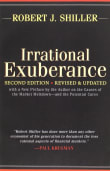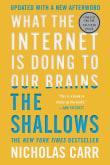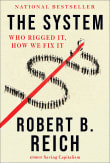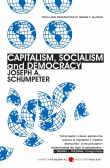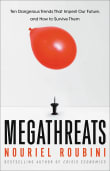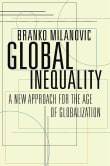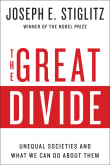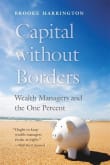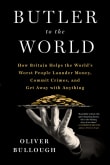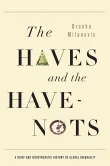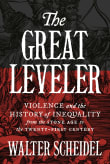Capital in the Twenty-First Century
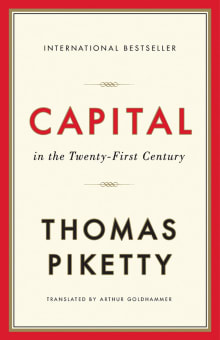
Book description
A New York Times #1 Bestseller
An Amazon #1 Bestseller
A Wall Street Journal #1 Bestseller
A USA Today Bestseller
A Sunday Times Bestseller
A Guardian Best Book of the 21st Century
Winner of the Financial Times and McKinsey Business Book of the Year Award
Winner of the British Academy…
Why read it?
6 authors picked Capital in the Twenty-First Century as one of their favorite books. Why do they recommend it?

This is an obvious choice, but it’s obvious for a reason–it sets out clearly and rigorously the extent to which the super-rich across multiple different countries suck up an ever-increasing share of aggregate income and wealth.
There’s doubtless some satisfaction from being one of the small proportion of purchasers to get through all 700+ pages, but it’s actually quite readable and peppered with literary references to writers like Jane Austen and Honore Balzac.
From Luke's list on wanting to eat the rich.

This is a book that truly transformed the field of inequality studies by bringing wealth inequality to the fore of the debate–both within the academy and across civil society. It is also a very readable book, packed with interesting examples and useful and relevant information.
Although I have always thought (and I am in very good company…) that it could have been a bit shorter, it is very well worth the effort of going through its about seven hundred pages.
From Guido's list on the rich, the super-rich, and wealth inequality in general.

As soon as you start reading, it’s obvious how the economist Thomas Piketty’s book has played a key part in reigniting debate over how and why our societies have allowed such grave inequalities of income and wealth to emerge.
A surprisingly light read, Capital in the Twenty-First Century brings together groundbreaking data on the distribution of financial resources in European and North American countries over more than a century. The central argument is that these inequalities will always arise, if unchecked by state intervention – not least, in the form of wealth taxation.
If you live in a rich country…
From Alex's list on tax justice.
If you love Capital in the Twenty-First Century...

In contrast to seeing the causes of inequality flowing from the labour market, this book is focused on how the capital income ratio has changed using long time series of data that Piketty and his collaborators have assembled.
Piketty argues that there is a long-run tendency for the growth of capital to outpace income and this leads to increasing income accruing to capital which explains the rising levels of inequality in capitalist economies. His most well-known assertion is that r>g where r is the average annual rate of return on capital and g is the rate of growth of the…
From Francis' list on inequality and the disagreements over the cause.

Piketty uses tax receipts of past decades in developed economies to show that wealth increasing comes from capital, not labor, greatly increasing the gap between the rich and the poor (I anticipated this argument in my 2005 book).
His analysis demonstrates the importance of regulating the clearly unrestrained risks of capitalism. But whether his solution of a global wealth tax is realizable is an open question.
From Robert's list on the world economy, finance trends, and options.

Several reviewers, including Nobel Prize-winning economist Paul Krugman, deemed Thomas Piketty’s Capital in the Twenty-First Century the most important economics book of the year in 2017, perhaps the decade. As a historian who writes on global economic topics, I find Piketty’s treatment of rising economic inequality extraordinarily insightful. The book forcefully challenges the widely held, naive assumption that the problem of income and wealth inequality will eventually take care of itself. Capital’s relevance is enhanced by the COVID-19 pandemic-generated rise in global inequality. It is a voluminous masterpiece, the result of a dozen years of primary research and thorough…
From Luis' list on today's biggest domestic and global challenges.
If you love Capital in the Twenty-First Century...
Want books like Capital in the Twenty-First Century?
Our community of 12,000+ authors has personally recommended 100 books like Capital in the Twenty-First Century.

